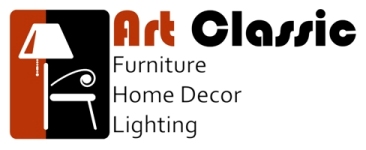1. What is the SVLK?
Through multi stakeholder consultation since 2003, finally in June 2009 the Government of Indonesia issued the Minister of Forestry Decree No. P. 38/Menhut/II/2009 on the Standards and Guidelines of Performance Evaluation of Sustainable Forest Management (SFM) and Timber Legality Verification for Permit Holder or on Private Forest. The new regulation, known as the Timber Legality Assurance System (or SVLK in Indonesian) has been implemented since September 2009. By the end of 2011, the regulation was revised and improved by the issuance of Minister of Forestry Regulation No. P68/Menhut-‐II/2011.
2. Why is SVLK Needed?
This is an Indonesian effort to assure the legality of its timber products, which is in line with the trend of major timber market globally and will meet this stronger demand for legal timber. The Government of Japan applies Goho wood or Green Konjuho which requires that timber imported into the country comes from legal sources. The Government of the United States of America amended the Lacey Act, aimed at avoiding import of illegal timber into the country. The European Union issued Regulation No. 995/2010 (Timber Regulation) obliging operator to possess irrefutable proofs that timber products that they trade do not come from illegal sources and prohibiting illegal timber.
3. How does the SVLK Operate?
P. 38/Menhut/II/2009 revised as P68/Menhut-‐II/2011 stipulates that the forestry business unit must get certified for Sustainable Forest Management (SFM), or at the minimum be certified for legality. Further, all timber‐related industrial units, either primary or secondary industry, have to obtain a legality certificate. Sustainable Forest Management (“PHPL”) or legality assessment or audit is conducted independently assessor/verifier institutions accredited by the National Accreditation Body (Komite Akreditasi Nasional or KAN), and are monitored by NGOs or civil society. By the end of 2011 assessment of SFM to management unit or permit holder operating on various forest management types had been conducted on a total area of around 8.8 million Ha.
Legality verification on people’s forest total: 5 (five) units of approximately 6,055.85 ha spread from Wonosobo, Blora, Gunungkidul, Lampung, and South Konawe in Southeast Sulawesi. Meanwhile, in 2012 people’s forest are being auditted is 3,307.72 ha located in Bali, Muna Southeast Sulawesi and Bulukumba South Sulawesi.
Timber Legality Verification (VLK) has also been conducted in natural forest and plantation forest covering a total of around 800,000 Ha. The VLK has also been conducted in 216 factories. The details of this development is as follows:
• SFM Performance Evaluation on Natural Forest HPH/IUPHHK: 40 Units, total area 4,801,262 Ha.
• SFM Performance Evaluation on Plantation Forest HTI/IUPHHK: 38 Units, total area 3,475,931 Ha.
• Legality verification on Natural Forest HPH/IUPHHK: 12 units, total area 924,419 Ha.
• Legality verification on Plantation Forest HTI/IUPHHK: 10 unit of 803,191 Ha.
• Legality verification on Right Forest: 9 unit of 3,972 Ha
• Legality verification on timber processing industries: 300 Units.
4. What is the relationship between the SVLK and the VPA?
The European Union adopted the Timber Regulation to halt the circulation of illegal timber in the European market. The Timber Regulation will become effective in March 2013. From then on all imports of timber into any member state of the European Union will have to pass a due diligence assessment to prevent illegal timber from entering the market in European Union. Importers will not have to apply this due diligence assessment on timber products from an exporting country like Indonesia that has signed and implemented a Voluntary Partnership Agreement (VPA) with the European Union. Such timber is considered zero risk of being illegal under the EU Timber Regulation.
5. How does the SVLK Related to the VPA?
For the last four years, Indonesia and European Union have been negotiating a VPA. There has been three Senior Official Meetings, seven Technical Working Group meetings and seven expert level consultations. At the third and last Senior Official Meeting in Brussels in April 2011 both side concluded the VPA text and its 9 annexes in which the SVLK was approved as the system to be applied to prove the legality of Indonesian timber. By the end of February 2012 all the processes to finalize the agreement, including the so called legal scrubbing, had been completed. The European
Union must then translate all these documents into different languages of its member states and so start the ratification process.
6. When was the negotiation on VPA Finished?
After the 15 April meeting at the European Commission in Brussels, the Indonesian Minister of Forestry Zulkifli Hasan and the EU Trade Commissioner Karel De Gutch initialed the FLEGT-‐VPA on 4 May 2011 in Jakarta. With this Indonesia followed several African countries (Ghana, Cameroon, Congo) who had already signed a VPA with European Union. Indonesia is the first Asian country with a VPA with the European Union, although negotiations between Malaysia and Vietnam and the European Union are showing some recent progress.
7. What is the benefit to indonesia of signing the VPA?
By signing the VPA all timber exports from Indonesia to the EU will be considered zero risk of illegality under the EU Timber Regulation and will also not have to go through any due diligence assessment process, saving time and money. The EU Timber Regulation has a specific clause which recognize timber coming from VPA countries as legal. This will increase EU importers confidence in Indonesian timber products and make their products more attractive compared with non-‐VPA timber.
8. How about BRIK’s endorsement?
To complement the regulation on SVLK, through coordination with the Ministry of Trade, Ministry of Industries, the Directorate General of Customs, KAN, associations and other parties including representatives from NGOs, Indonesia is currently in the final phase of formulating a concept of regulation that will replace the role, function, and mechanism of the Forestry Industries Revitalization Body (Badan Revitalisasi Industri Kehutanan or BRIK) as the institution that endorses export of timber products in Indonesia. Previously, export of timber products was regulated by Minister of Trade Regulation No. P.20/2008. Subsequently, through a decree of the Minister of Trade No. Kep 405/2008, BRIK was given the mandate to endorse 11 HS Codes for forestry products. This Minister of Trade Regulation will soon be revised, because SVLK was appraised as having much more credibility and acceptance in international timber market, as it is seen as a system that independently gives evidence the legality of Indonesian timber products through verification of administration and physical reality on the field. “Endorsement” will be replaced with “publishing of timber legality document” or V-‐Legal document by Conformity Assessment Bodies” for industry that has legality certificate (Indo-‐TLAS).
9. What is VLegal document?
SVLK (TLAS) certificate guarante that operator / timber industry complied legality standards and criterias. The industries that already comply with SVLK certificate need to obtain V-‐Legal Document for every consignment or export. The V-‐Legal Document ensure that timber and timber product came from legal sources. The same as SVLK certificate, V-‐Legal Document also issued by Conformity Assessment Body (LVLK).
10. How is the “V Legal Document” applied to move towards full implementation of FLEGT VPA for European and Non European market in 2013 ?
The application of SVLK is mandatory for forest management units and industries. Each product that will be exported has to be accompanied by V-Legal Document issued by the Conformity Assessment Body.
The timeline for application of V-‐Legal document depends on the revision of PERMENDAG 20, which it is assumed will be issued in April 2012, after which the V-‐Legal Document will be effectively required, with current estimates being for July 2012.
After then, any industry that exports its products will have to pass through legality verification process in order to obtain a V-‐Legal Document. If an industry has not been verified for its legality, then an inspection will need to
be done by a Conformity Assessment Body to enable that industry to export its products.
For the time after the implementation of EU Timber Regulation in March 2013, all export to European Union has to pass legality verification in order to obtain the FLEGT License.
11. How is the issuance of The V-Legal Document?
The Registered Exporter (auditee) propose for the issuance of V Legal Document to the conformity assessment body (LVs). The LVs will submission the V Legal Document through License Information Unit on line system in the DG Forest Utilization, Ministry of Forestry.
The on line application form of V-Legal Document consisted the information of type of timber, volume of timber and timber product export etc. will be examine automatically through LIU system and will connected to INATRADE system in DG of Foreign Trade, Ministry of Trade.




